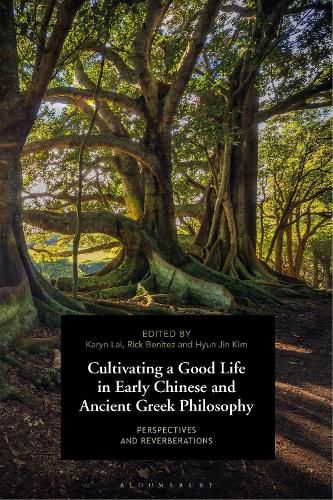Readings Newsletter
Become a Readings Member to make your shopping experience even easier.
Sign in or sign up for free!
You’re not far away from qualifying for FREE standard shipping within Australia
You’ve qualified for FREE standard shipping within Australia
The cart is loading…






This book engages in cross-tradition scholarship, investigating the processes associated with cultivating or nurturing the self in order to live good lives. Both Ancient Chinese and Greek philosophers provide accounts of the life lived well: a Confucian junzi, a Daoist sage and a Greek phronimos.
By focusing on the processes rather than the aims of cultivating a good life, an international team of scholars investigate how a person develops and practices a way of life especially in these two traditions. They look at what is involved in developing practical wisdom, exercising reason, cultivating equanimity and fostering reliability. Drawing on the insights of thinkers including Plato, Confucius, Han Fei and Marcus Aurelius, they examine themes of harmony, balance and beauty, highlight the different concerns of scepticism across both traditions, and discuss action as an indispensable method of learning and, indeed, as constitutive of self. The result is a valuable collection opening up new lines of inquiry in ethics, demonstrating the importance of philosophical ideas from across cultural traditions.
$9.00 standard shipping within Australia
FREE standard shipping within Australia for orders over $100.00
Express & International shipping calculated at checkout
This book engages in cross-tradition scholarship, investigating the processes associated with cultivating or nurturing the self in order to live good lives. Both Ancient Chinese and Greek philosophers provide accounts of the life lived well: a Confucian junzi, a Daoist sage and a Greek phronimos.
By focusing on the processes rather than the aims of cultivating a good life, an international team of scholars investigate how a person develops and practices a way of life especially in these two traditions. They look at what is involved in developing practical wisdom, exercising reason, cultivating equanimity and fostering reliability. Drawing on the insights of thinkers including Plato, Confucius, Han Fei and Marcus Aurelius, they examine themes of harmony, balance and beauty, highlight the different concerns of scepticism across both traditions, and discuss action as an indispensable method of learning and, indeed, as constitutive of self. The result is a valuable collection opening up new lines of inquiry in ethics, demonstrating the importance of philosophical ideas from across cultural traditions.